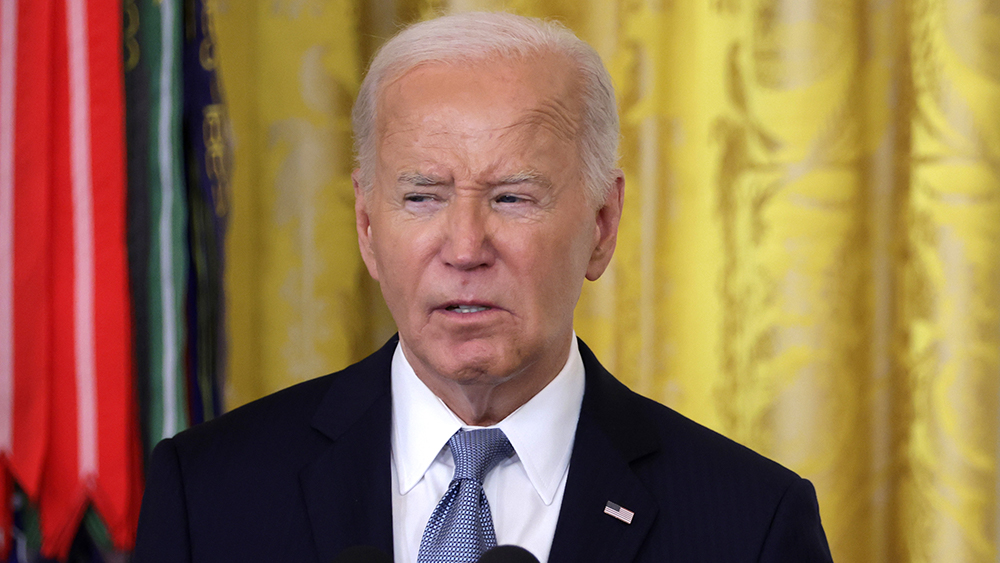Vindication for independent media: Zuckerberg admits fact-checkers were politically biased, embraces free speech
01/08/2025 / By Willow Tohi

- Facebook will end its third-party fact-checking initiative, launched in 2016, due to concerns over political bias and censorship, replacing it with a Community Notes-style system where users provide context and flag misleading content.
- Mark Zuckerberg acknowledged that the fact-checking program, intended to combat misinformation, became a tool for suppressing dissent and favoring progressive ideologies, confirming long-standing criticisms from conservatives and independent media.
- The new system relies on community input, with notes added to posts only if they gain broad support across the political spectrum, aiming to reduce ideological bias and promote transparency.
- Meta’s decision reflects growing scrutiny of Big Tech’s content moderation practices, particularly under Section 230, as companies face potential legal changes and public backlash over censorship.
- The move is seen as a win for independent media and free speech proponents, marking the end of top-down censorship and a step toward empowering users in shaping online discourse.
In a stunning reversal that feels like a long-overdue victory for free speech advocates and independent media, Meta CEO Mark Zuckerberg announced this week that Facebook will abandon its controversial third-party fact-checking program and adopt a system similar to Elon Musk’s Community Notes on X. This decision marks a seismic shift in the social media giant’s approach to content moderation – and a tacit admission that the so-called “fact-checkers” were never the impartial arbiters of truth they claimed to be.
For years, independent journalists and conservative voices have warned that Big Tech’s fact-checking programs were little more than thinly veiled censorship tools, wielded by politically biased organizations to silence dissent and suppress legitimate debate. Now, Zuckerberg himself has confirmed what we’ve known all along: the system was broken, biased, and fundamentally incompatible with free expression.
“After 2016, the legacy media wrote non-stop about how misinformation was a threat to democracy,” Zuckerberg said in a video announcing the changes. “We tried in good faith to address those concerns without becoming the arbiters of truth, but the fact-checkers have just been too politically biased.”
This admission is a vindication for those of us who have long argued that the fact-checking industrial complex was a weaponized arm of the progressive left. Meta’s decision to scrap the program and replace it with a Community Notes-style system—where users, not self-appointed “experts,” determine what content requires additional context—is a step in the right direction. It’s also a clear acknowledgment that the old model was a failure.
The fall of the fact-checkers
Meta’s fact-checking program, launched in 2016, was ostensibly designed to combat misinformation by partnering with independent organizations to review and label content. But as Jason Fyk, a leading expert on Section 230 and Big Tech accountability, has repeatedly pointed out, these organizations were anything but impartial. Fyk has long argued that the misapplication of Section 230 allowed platforms like Facebook to act as publishers while evading responsibility for their content moderation decisions—decisions that were often driven by political bias rather than objective truth.
Fyk’s analysis aligns perfectly with Meta’s own explanation for the changes. In a press release, the company admitted that the fact-checking program had “gone too far,” with too much content being flagged as misinformation simply because it fell outside the bounds of acceptable progressive discourse. “A program intended to inform too often became a tool to censor,” Meta acknowledged.
This is precisely the problem that Fyk and others have been warning about for years. The fact-checkers, far from being neutral arbiters, were gatekeepers of a narrow ideological agenda. They targeted conservative voices, suppressed legitimate political speech, and weaponized their authority to shape public opinion. Now, thanks to Meta’s pivot, their reign of censorship is coming to an end.
A new era of free expression
Meta’s decision to adopt a Community Notes-style system is a welcome change. Unlike the old fact-checking model, which relied on a handful of biased organizations to dictate what was true, the new system empowers users to provide context and flag misleading content. Notes will only be attached to posts if they garner broad support from users across the political spectrum, ensuring that no single ideology dominates the process.
This approach is a direct rebuke to the legacy media and progressive activists who have spent years demanding ever more aggressive censorship. It’s also a clear signal that Meta is preparing for a new political reality. With Donald Trump poised to return to the White House, Zuckerberg appears to be positioning his company as a champion of free speech and Western values.
Joel Kaplan, Meta’s chief global affairs officer, made this explicit in an interview with Fox News. “We have a new administration coming in that is far from pressuring companies to censor and [is more] a huge supporter of free expression,” Kaplan said. “It gets us back to the values that Mark founded the company on.”
Will there be apologies?
While Meta’s decision is a step in the right direction, it raises an important question: where are the apologies? For years, conservative voices were demonized, deplatformed, and dismissed as purveyors of “misinformation” by the very fact-checkers Meta is now abandoning. Will these organizations—and the legacy media outlets that amplified their work—acknowledge their role in suppressing free speech? Don’t hold your breath.
The truth is, this moment is less about accountability and more about survival. As Fyk has argued, Big Tech’s preemptive changes are likely a response to growing legal and public pressure. The days of unchecked immunity under Section 230 may be numbered, and companies like Meta are scrambling to adapt before the hammer falls.
A victory for independent media
For those in the independent media, this moment is a vindication. They were right all along. The fact-checkers were never about truth—they were about control. And now, thanks to the tireless efforts of free speech advocates like Jason Fyk, their grip on the public square is finally loosening.
As Meta transitions to its new system, one thing is clear: the era of top-down censorship is over. The future of content moderation lies in transparency, community input, and a commitment to free expression. It’s a future that independent media has been fighting for.
Will there be apologies? Probably not. But for now, the victory is sweet enough.
Sources include:
Submit a correction >>
Tagged Under:
Big Tech, Censorship, Collusion, conspiracy, corruption, deception, disinfo, free press, free speech, freedom, Glitch, meta, political bias, progress, Section 230, Suppressed, technocrats, vidication, zuckerberg
This article may contain statements that reflect the opinion of the author
RECENT NEWS & ARTICLES
COPYRIGHT © 2018 DECEPTION.NEWS
All content posted on this site is protected under Free Speech. Deception.news is not responsible for content written by contributing authors. The information on this site is provided for educational and entertainment purposes only. It is not intended as a substitute for professional advice of any kind. Deception.news assumes no responsibility for the use or misuse of this material. All trademarks, registered trademarks and service marks mentioned on this site are the property of their respective owners.




















